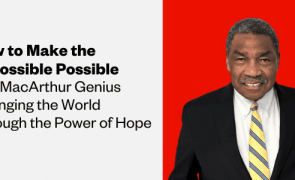“Often there’s a mismatch between how people perceive their vulnerabilities and how others interpret them. We tend to think showing vulnerability makes us seem weak, inadequate, and flawed—a mess. But when others see our vulnerability, they might perceive something quite different, something alluring.” Researchers call this “the beautiful mess effect” and Emily Esfahani Smith, standing-o garnering TED speaker and author of The Power of Meaning, explores it in her latest for The Atlantic.
Emily Esfahani Smith’s articles in The Atlantic have been read over 30 million times, and her writing on culture and psychology—drawing on neuroscience, philosophy, and literature—have also appeared in The Wall Street Journal, The New York Times, TIME, and more.
Watch her celebrated TED talk on the pursuit of meaning, not happiness, as the key to a good life.

To book Emily Esfahani Smith for your next event, contact The Lavin Agency.















